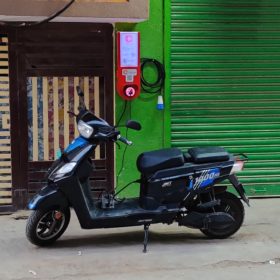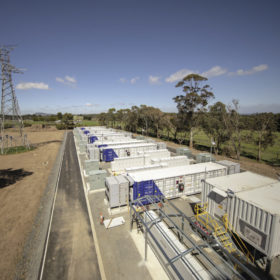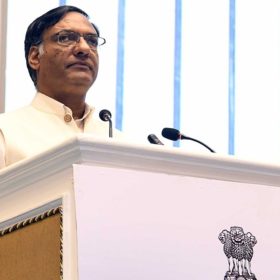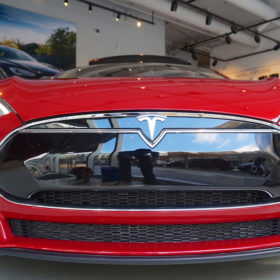Startup launches cheapest EV charger, plans to install 100,000 units in a year
Having bagged orders for 470 chargers in pilot stage itself, Bengaluru based electric scooter startup FAE Bikes plans to aggressively expand its IOT enabled EV charging network. The chargers—costing just Rs 10,000—can be set up anywhere including small shops and homes with standard power supply.
The long read: Go big, go with the flow
While lithium batteries have taken center stage for energy storage, vanadium redox flow batteries could gain considerable traction in 2020. In previous years, vanadium battery installations around the world have done little more than provide proof of concept and a test bed for manufacturers, argues David Gillam from Mastermines. He looks at what may have changed since then and why a surge in batteries utilizing vanadium may be closer than many believe, with China taking the lead.
Balancing the renewable energy intermittency
Annual renewable energy balancing between resource-surplus and resource-deficit states can help solve DISCOM woes while ensuring their compliance to renewable purchase obligations.
Healing the cracks for a more stable perovskite
Scientists in the United States have demonstrated simple methods for ‘healing’ the cracks that form in perovskite solar cells. While it is far from clear how the approach could be applied commercially, the work suggests possibilities for maintaining the performance of perovskite cells in long-term operation.
Solar powered portable cold storage, grid monitoring system among winners of Social Alpha Energy Challenge 2.0
The winning startups will receive lab-to-market incubation support at the Clean Energy International Incubation Centre (CEIIC), which has been set up by the not-for-profit platform Social Alpha with support from Government of India and Tata Trusts in Delhi.
A few policy tweaks would boost renewable energy investment, says IEEFA India
Removal of solar trade duties, discom reforms, and better central-state government coordination are prerequisites to increase renewable project development in the country.
Coronavirus could cost Chinese battery makers 26 GWh of output
WoodMac analysts say the amount of new battery manufacturing capacity added in the nation this year could fall by as much as 10% because of the outbreak. With Tesla’s Shanghai gigafactory affected by the extended new-year-holiday shutdown, the analyst warned of potential supply shortages for Australia and the U.S. and U.K.
Highly conducive tax, policy environment is solarizing India’s digital economy
India is fostering a digital future via Prime Minister Narendra Modi’s ‘Digital India’ initiative – a national blockchain strategy that includes quantum computing, machine learning and artificial intelligence, as digital technologies become the primary platform for economic activity and growth.
India’s future energy options all add up to coal, agree the experts
Panellists including a government representative and a member of the chief policy thinktank used by Narendra Modi agreed coal will continue as the staple source of Indian power into the mid century and technology should be employed to ‘clean’ it.
Energy density advances and faster charging would unlock EV revolution
With electric vehicles making up only 3% of the global car market last year, analyst WoodMac says battery packs need to be cheaper and lighter and range anxiety must be addressed to change the habits of drivers.















